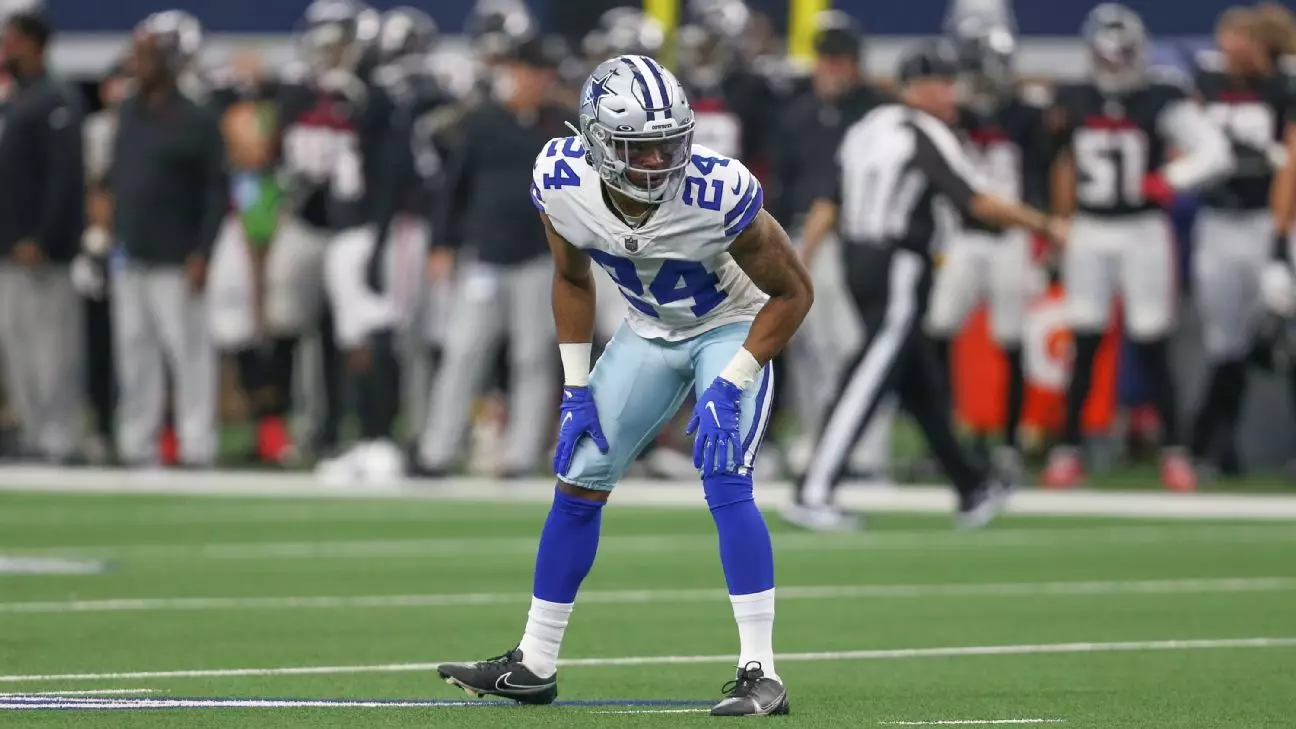In a shocking incident that has reverberated through both sports and local communities, former NFL cornerback Kelvin Joseph has found himself at the center of a tragic event following a deadly crash in Richardson, Texas. The collision that claimed the life of 27-year-old motorcyclist Cody Morris highlights not only an alarming personal failure but also raises questions about responsibility and accountability within professional sports. Joseph’s involvement in this crash, while seemingly an isolated incident, signals a troubling trend among athletes—where fame and reckless behavior intersect dangerously.
A Pattern of Recklessness
Joseph’s recent legal troubles are not an isolated event but rather part of a concerning series of incidents that have marred his career. Just last offseason, he was incidentally involved in a shooting that left a man dead, sparking conversations about his lifestyle choices and the relentless cycle of violence that often accompanies it. The fact that he has managed to evade significant repercussions for such serious accusations until now does little to enhance his standing, particularly considering the new allegations of driving while intoxicated (DWI) in conjunction with a fatal accident.
The public’s perception of athletes is often skewed by admiration for their talent, but incidents like these dismantle this glorified facade. Joseph, now apprehended for a DWI, exemplifies how quickly success can evaporate when individuals take reckless actions into their own hands, putting not only their lives but also the lives of others at risk. His arrest serves as a sobering reminder of the responsibilities athletes carry, both on and off the field.
The Consequences of Poor Choices
Facing charges for DWI and a second-degree felony for collision resulting in death, Joseph’s career trajectory is now uncertain, and the repercussions of his actions could extend far beyond legal challenges. The United Football League (UFL) has stated they are aware of his situation, yet opted not to comment further, demonstrating the reluctance of sports organizations to engage in controversies that could tarnish their brands. The silence from the UFL raises red flags about how leagues handle players’ behavioral issues. Are they equipped to address the potential fallout from athletes who engage in reckless behavior, or are they merely focused on their marketability?
As Joseph navigates this turbulent chapter, the greater conversation revolves around the culture of risk that exists within athletic circles. Is there sufficient support and guidance for young athletes as they transition from college football to professional play? Or are they left to manage their fame amid temptations and pressures without the necessary tools for making sound choices?
A Call for Greater Accountability
The latest events involving Joseph shed light on the need for heightened accountability structures within sports. Teams must take a more proactive role in ensuring their players understand the gravity of their actions off the field. Beyond simply placing athletes in positions of power and influence, leagues and organizations have a duty to cultivate an environment that discourages reckless and irresponsible behavior.
As the story continues to unfold, Joseph’s personal choices will undoubtedly cast a long shadow, not only over his career but also over the legacy that he hoped to build in professional football. The responsibility for change falls not only on athletes like Joseph who must reevaluate their priorities but also on the organizations that foster their careers, ensuring that the right message about accountability is communicated loud and clear.

